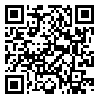Articles accepted at the time of publication
Back to the articles list |
Back to browse issues page
1- professsor/ department of linguistics / faculty of literature/ alzahra University/ Tehran/ Iran , fhaghbin@alzahra.ac.ir
2- Postdoctoral Researcher/Department of Linguistics /Faculty of Literature/alzahra University/Tehran/Iran
2- Postdoctoral Researcher/Department of Linguistics /Faculty of Literature/alzahra University/Tehran/Iran
Abstract: (2704 Views)
A prominent characteristic of the trial discourse is the imbalance of power between the participants, in such a way that the power is imposed unilaterally from the interrogator (be it the investigator, the judge, etc.) to the addressee. The most important tool for imposing power is the use of "question" which has a controlling feature. In order to analyze the different dimensions of the trial discourse, the present research studies the structural, discursive and pragmatic aspects of questions in different criminal, civil and family branches in the court and prosecutor's office of Duroud city. In the structural dimension, the types of morpho-syntactic characteristics and in the pragmatic dimension, the type of speech act of different types of questions have been considered. In this regard, we examined the data by combining quantitative and qualitative approaches. The results indicate that the most frequently used question forms are related to yes/no and narrow wh-questions. It was also found that the questions have three types of regulative, constative and communicative speech acts. The findings confirm that some questions that have a communicative action are raised by lay participants with the purpose of clarification, and therefore, in some situations, it is possible to observe a change in the one-sided questioning pattern of interrogator → addressee. Most of the questions that are raised by lay people are rooted in their lack of familiarity with technical legal terms, which in some cases can lead to consequences such as the lack of a favorable defense.
Article Type: مقالات علمی پژوهشی |
Subject:
Linguistics
Send email to the article author
| Rights and permissions | |
 |
This work is licensed under a Creative Commons Attribution-NonCommercial 4.0 International License. |






